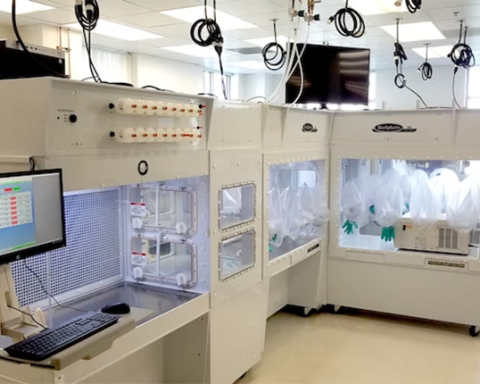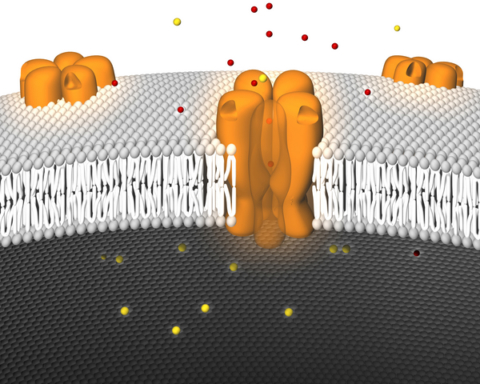Cell therapies, where cellular material is injected, grafted or implanted into a patient to treat a range of illnesses and medical conditions, are a vital and integral component of medicine today – promising treatment of tissue degenerative diseases, cancer, and autoimmune disorders.
However, significant challenges currently exist to prevent its widespread adoption including problems such as safety, potency, efficacy, and costs. To overcome these challenges, the Singapore-MIT Alliance for Research and Technology (SMART), together with A*STAR Institutes and supported by the National Research Foundation (NRF), has launched a new national initiative in Singapore that deploys MIT’s globally renowned applied innovation methodology combined with Singapore’s dynamic and growing biopharmaceutical manufacturing industry.
As part of the national initiative in cell manufacturing, CAMP is a new interdisciplinary research group within SMART that will focus on ways to produce living cells as medicine delivered to humans, leading to improved health outcomes. The National Research Foundation will support this multi-million, multi-year project that will bring together 35 MIT and Singapore investigators. They will be recruited from researchers working in SMART and Singapore institutes including A*STAR, KK Women’s and Children’s Hospital, the National University Hospital and local universities. Investigators from MIT in Cambridge, Massachusetts will also be recruited to support the programme.
This is a field that is ripe for innovation, and one which we believe will benefit from both MIT’s and Singapore’s strengths–Eugene Fitzgerald, CEO and Director of SMART
“By applying our problem-solving research methodology, coupled with Singapore’s well-established biopharmaceutical manufacturing ecosystem, we are confident that we will be able to achieve market-ready breakthroughs.”
Since its inception in Singapore in 2007, SMART has pioneered innovations that have transformed and are transforming fields such as autonomous driving, agriculture, microelectronics, mechanics and microfluidics platforms for biology and medical diagnostics, and antimicrobial resistance.
SMART CAMP will be helmed by Professor Krystyn Van Vliet of MIT and Professor Hanry Yu of NUS and A*STAR. Professor Van Vliet is an engineer with expertise at the interface of materials, mechanics, and biological systems and is an experienced leader, currently serving as the Associate Provost and the Director of Manufacturing Innovation at MIT. Her current research stemming from earlier SMART collaborations is in clinical trials at the Singapore General Hospital, and the prior SMART team that she led has spun off several MedTech companies in Singapore.
Professor Van Vliet explained, “By addressing critical technology bottlenecks in how the next generation of personalised medicines is made, SMART CAMP researchers will help set the standards for innovating on quality by design. Imagine providing just the right living cells – the most sophisticated drug factories we know – to each patient, as quickly and safely as possible. Delivering on that promise requires exciting changes in the way we understand, engineer, measure, and select cells that offer a safe and effective medicine for that person’s ailment. And that goal, in turn, benefits from this investment in the research and researchers that can transform the manufacturing and analytics of biopharma products.”
Professor Yu is a physiologist with expertise interface between mechanobiology, biomaterials, imaging and AI-based data analytics. He is also a serial entrepreneur, recently forming six companies, and the founding member of the Mechanobiology Institute Research Centre of Excellence in Singapore.
“This programme integrates experts from various disciplines, training staff and students who can think through the translational pipelines from basic knowledge and technology into commercially viable and clinically relevant solutions”, said Professor Yu.
“There is a global need for safe and cost-effective cell therapies,” said Dr. Khiang Wee Lim, Executive Director of CREATE, NRF. “We believe that it is an area in which Singapore can provide innovation space and bring these transformational technologies to millions around the world. Advances in this area will also boost Singapore’s biopharmaceutical industry, bringing innovations and helping gain a lead in this promising market that is estimated to be worth billions.”
About Singapore-MIT Alliance for Research and Technology (SMART)
Singapore-MIT Alliance for Research and Technology (SMART) is MIT’s Research Enterprise in Singapore, established by the Massachusetts Institute of Technology (MIT) in partnership with the National Research Foundation of Singapore (NRF) since 2007. SMART is the first entity in the Campus for Research Excellence and Technological Enterprise (CREATE) developed by NRF. SMART serves as an intellectual and innovation hub for research interactions between MIT and Singapore. Cutting-edge research projects in areas of interest to both Singapore and MIT are undertaken at SMART. SMART currently comprises an Innovation Centre and six Interdisciplinary Research Groups (IRGs): Antimicrobial Resistance (AMR), BioSystems and Micromechanics (BioSyM), Critical Analytics for Manufacturing Personalized-Medicine (CAMP), Disruptive & Sustainable Technologies for Agricultural Precision (DiSTAP), Future Urban Mobility (FM) and Low Energy Electronic Systems (LEES).








